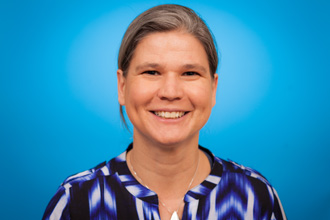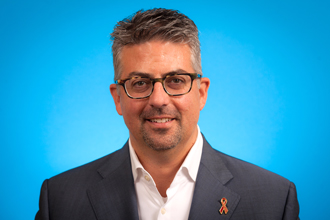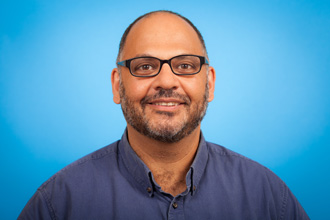Eight researchers at MAP Centre for Urban Health Solutions receive more than $18 million in federal funding

By Anna Wassermann
Eight researchers at St. Michael’s Hospital’s MAP Centre for Urban Health Solutions have received more than $18 million in federal funding from recent Canada Research Chair allocations and Canadian Institutes of Health Research (CIHR) and Collaborative Health Research Projects (CHRP) grant competitions.

Dr. Stephen Hwang
Dr. Stephen Hwang, the director of MAP Centre for Urban Health Solutions, was one of 28 researchers to receive support in the most recent round of CIHR Foundation Grant competition. CIHR Foundation Grants provide long-term support for leading health researchers in the pursuit of innovative, high-impact research programs. This year’s competition was the final round of the Foundation Grants program.
Dr. Hwang, whose research focuses on improving the health of homeless or vulnerably housed people, received a seven-year year Foundation Grant to continue his interventions research in homelessness, housing and health.

Dr. Janet Smylie
Dr. Janet Smylie, the director of the Well Living House, a specialized Indigenous health research unit housed in MAP, was also successful in the Foundation Grant competition. This makes her the first senior researcher to receive a CIHR Foundation Grant focused on Indigenous health research.
Working in partnership with First Nations, Inuit, Métis and urban Indigenous communities, knowledge keepers, health services, and policymakers across Canada, Dr. Smylie and the Well Living House team will continue their groundbreaking Our Health Counts work. This project aims to overcome gaps in urban Indigenous health assessment and response, and to ensure that the strengths, challenges, and inherent rights of Indigenous peoples are “counted in” to health services planning and implementation.

Dr. Patricia O’Campo
Dr. Patricia O’Campo, a scientist at MAP Centre for Urban Health Solutions and the interim executive director of the Li Ka Shing Research Institute, was recently appointed a Tier 1 Canada Research Chair in Population Health Intervention Research. The Canada Research Chairs Program aims to make Canada one of the world’s top countries in research and development, by attracting and retaining a body of diverse and exceptional researchers.
A social epidemiologist, Dr. O’Campo is using her chair to lead research into the advancement of population health interventions by evaluating current practices, and informing the design of health and social protection programs and policies to reduce urban health inequities.

Dr. Nav Persaud
Dr. Nav Persaud, a scientist at MAP Centre for Urban Health Solutions, was also successful in the most recent round of Canada Research Chair allocations. Appointed a Tier 2 Canada Research Chair in Health Justice, Dr. Persaud will use his appointment to continue research aimed at narrowing the gap between the highest and lowest wealth brackets.
Dr. Sean Rourke, a scientist at MAP Centre for Urban Health Solutions, received a CIHR Biomedical and Clinical Team Grant, awarded to a research team bringing together experts from different disciplines in the study of HIV/AIDS.

Dr. Sean Rourke
Dr. Rourke also received funding for the CIHR Centre for REACH in HIV/AIDS, which is a national network of patients, community-based organizations, front-line service providers and health researchers who collaborate on research and policy development to support individuals with HIV/AIDS, Hepatitis C and other sexually transmitted and blood borne infections.
Dr. Flora Matheson, a scientist at MAP Centre for Urban Health Solutions, received funding earlier this year through CHRP, which is a joint initiative between CIHR, the Natural Sciences and Engineering Research Council of Canada and the Social Sciences and Humanities Research Council of Canada. CHRP Grants support focused, interdisciplinary, collaborative research projects.

Dr. Flora Matheson
A sociologist, Dr. Matheson’s research focuses on social marginalization and the social determinants of mental health, illicit drug use, alcohol consumption, crime and problem gambling. Her recent CHRP Grant is supporting the continued development of a free and first-of-its-kind smartphone and web app to help persons in vulnerable populations self-manage problem gambling and other complex needs.
Dr. Ahmed Bayoumi, a scientist at MAP Centre for Urban Health Solutions, received funding from the spring 2019 CIHR Project Grants competition. CIHR Project Grants support researchers pursuing projects with the greatest potential to advance health-related fundamental or applied knowledge, health research, health care, health systems or health outcomes.

Dr. Ahmed Bayoumi
A general internist and HIV physician, Dr. Bayoumi’s research interests include access to the delivery of health services. Funded by his recent CIHR Project Grant, Dr. Bayoumi is working on a study to evaluate whether people who survive opioid overdoses receive care for their drug use while in hospital, and care from family doctors, therapy for their drug use and mental health care after discharge.
Dr. Bayoumi also received funding from the Substance Use and Abuse Program, the Hard Reduction Fund and CIHR as part of an initiative by the federal government to support projects aimed at addressing Canada’s opioid crisis. With this funding, Dr. Bayoumi and his team are examining the effects of implementing supervised injection or overdose prevention sites on the number of overdoses that occur in the neighborhoods where sites are established.

Dr. Michelle Firestone
Dr. Michelle Firestone, a scientist at MAP Centre for Urban Health Solutions, also received federal funding as part of the initiative to address Canada’s opioid crisis. With this funding, Dr. Firestone and her team are continuing their work to identify the effectiveness of overdose prevention sites as a public health response to the current opioid overdose crisis.
Congratulations to our MAP Centre for Urban Health Solutions scientists on their exceptional achievements and recognition.
About St. Michael’s Hospital
St. Michael’s Hospital provides compassionate care to all who enter its doors. The hospital also provides outstanding medical education to future health care professionals in more than 27 academic disciplines. Critical care and trauma, heart disease, neurosurgery, diabetes, cancer care, care of the homeless and global health are among the Hospital’s recognized areas of expertise. Through the Keenan Research Centre and the Li Ka Shing International Healthcare Education Centre, which make up the Li Ka Shing Knowledge Institute, research and education at St. Michael’s Hospital are recognized and make an impact around the world. Founded in 1892, the hospital is fully affiliated with the University of Toronto.
About Unity Health Toronto
Unity Health Toronto, comprised of Providence Healthcare, St. Joseph’s Health Centre and St. Michael’s Hospital, works to advance the health of everyone in our urban communities and beyond. Our health network serves patients, residents and clients across the full spectrum of care, spanning primary care, secondary community care, tertiary and quaternary care services to post-acute through rehabilitation, palliative care and long-term care, while investing in world-class research and education. For more information, visit www.unityhealth.to.
